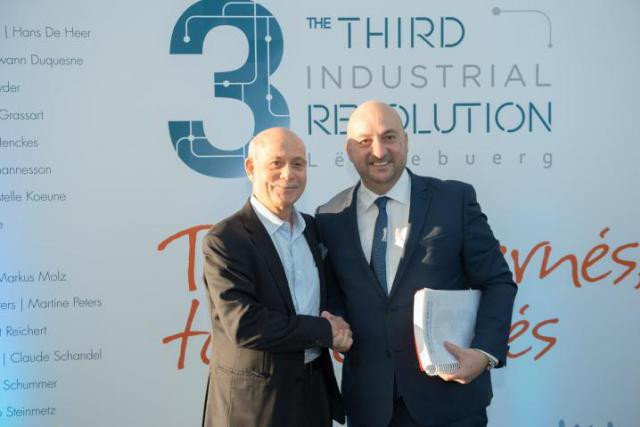The Luxembourg Business Compass seeks to understand the challenges facing local business leaders each year. 2018’s version revealed a lack of understanding of the elements of the Rifkin study on how to transform Luxembourg into a smart and sustainable economy, the so called “Third Industrial Revolution”.
Of the respondents who admitted a lack of knowledge, 82% were negative on the actions taken so far based on Rifkin’s recommendations. Of those business leaders who were well informed on Rifkin, 60% were positive about the actions taken.
“The report may be deemed more successful amongst business leaders if it were to become the subject of a more targeted communication campaign aiming to raise awareness of both its objectives and actions,” the compass states.
For those who wish to get better informed:
“What is referred to as 'the third industrial revolution' is in fact a development on a national scale that affects every aspect of everyday life. According to this model, developed by Jeremy Rifkin, information and communication technologies (ICT) - i.e. communication tools, the internet, the Internet of Things, etc. -, renewable energy and new means of transport ought to converge in a smart network. The aim of the strategic study commissioned by the government and carried out using a participatory approach in collaboration with Jeremy Rifkin and his team of experts is to make the existing economic model more sustainable and interconnected. The grand duchy is the first country to embark on this on a national scale.” (Source: Luxembourg.public.lu)
Some of the concrete measures put in place are:
- construction of a national energy Internet;
- promotion of electrically-propelled mobility and launch of a programme for emission-free personal vehicles;
- gradual introduction of mobility as a service, which represents an ecosystem for sustainable mobility in which individuals, using a multimodal approach, select a combination of modes of transport best suited to their everyday needs;
- carrying out of a flagship project to demonstrate the socio-economic contribution made by smart, sustainable, circular neighbourhoods/towns;
- establishment of a road map for sustainable food production based on transparency and trust;
- development of co-implanted technological platforms for industry and public research;
- setting up of an intermediation platform for financing sustainable development (the Luxembourg Sustainable Development Finance Platform);
- implementation of an infrastructure offering the necessary capacity in the field of high performance computing (HPC);
- promotion of the circular economy by public contracts.
